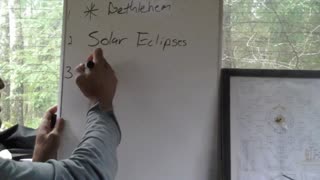2021-01-10 ● Did Christ celebrate Purim_ Esther in John 5
Questions about Feasts & Sabbath? See Playlist: https://www.youtube.com/playlist?list... - PLAYLIST: Feasts & Sabbath
2020 Enoch Calendar: https://youtu.be/n_glyJzWcPE - VIDEO: 2020 Enoch Calendar Feb 25, 2020
King sits on the Throne: https://www.youtube.com/playlist?list... - PLAYLIST: King sits on the Throne
Esthers Preparation: https://www.youtube.com/playlist?list... - PLAYLIST: Esthers Preparation
Questions on Rapture? See the Series: https://www.youtube.com/playlist?list… - PLAYLIST: Rapture Series
Notes will be added tomorrow
10qEsth Dead Sea Scrolls Esther https://www.thetorah.com/article/newly-deciphered-qumran-scroll-revealed-to-be-megillat-esther - ARTICLE: Newly Deciphered Qumran Scroll Revealed to Be Megillat Esther (TheTorah.com)
"C: Very interesting that esther chpt 2, she is entrusted to Hegai...Hegai means meditation,word,groaning,seperation
Made me think how we are entrusted the holy spirit while the king is away..the description of Hegai is similar to the holy spirit!"
R: Job 37:2 Hear attentively the thunder of His voice
h7267 rogez: agitation, excitement, raging: רֹגֶז rogez (ro'-ghez) agitation, excitement, raging; — ׳ר absolute Habakkuk 3:2 +, construct Job 37:2; suffix רָנְזֶךָ֑ Isaiah 14:3; — raging Job 3:17; disquiet, turmoil Isaiah 14:3; Job 3:26; Job 14:1; raging, wrath Habakkuk 3:2; קֹלוֺ ׳ר Job 37:2 rumbling of his voice (i.e. thunder); of excitement of warhorse, בְּרַעַשׁ וְרֹגֶּז Job 39:24 "He swalloweth the ground with fierceness and rage"= rôg̱ez of Horseriders
Job 37:2 the sound that goeth out of his mouth.
◄ h1899 hegeh ►
hegeh: a rumbling, growling, moaning הֶגֶה (heh'-geh)
Definition: rumbling, growling, moaning: — ׳ה absolute Ezekiel 2:10 2t.; —
1 a rumbling, growling sound מִמִּיו יֵצֵא ׳וְה Job 37:2 of thunder, as sound going forth from God's mouth.
2 a moaning וָהִי ׳קִינִים וָה Ezekiel 2:10 lamentations and moaning and woe.
Root h1897. הָגָה hâg̱â; a primitive root (compare 1901); to murmur (in pleasure or anger); to ponder: — imagine, meditate, mourn, mutter, roar, x sore, speak, study, talk, utter. AV (25) - meditate 6, mourn 4, speak 4, imagine 2, study 2, mutter 2, utter 2, roaring 1, sore 1, talk 1;
Josh 1:8 This book (סֵפֶר sêp̱er) of the law (תּוֹרָה tôrâ) shall not depart (מוּשׁ mûš) out of thy mouth; but thou shalt meditate (הָגָה hâg̱â) therein day and night, that thou mayest observe to do according to all that is written therein:
Ps 77:12 I will meditate also of all thy work, and talk of thy doings. 13 Thy way, O God, is in the sanctuary: who is so great a God as our God?
18 The voice of thy thunder was in the heaven: the lightnings lightened the world: the earth trembled and shook.
Ps 5:1; 39:3 h1901 הָגִיג hâg̱iyg̱; from an unused root akin to 1897; a murmur, i.e. complaint: — meditation, musing.
Ps 49:3 the meditation (h1900 הָגוּת hâg̱ûṯ musing, meditation) of my heart shall be of understanding. I will incline mine ear to a parable: I will open my dark saying (חִידָה ḥîyḏâ) upon the harp.
Psalm 92:3 Upon an instrument of ten strings, and upon the psaltery; upon the harp with a solemn sound.
Ten string ā·śō·wr עָ֭שׂוֹר
Psaltery nā·ḇel; נָ֑בֶל
With harmonious sound hig·gā·yō·wn הִגָּי֣וֹן
On the harp bə·ḵin·nō·wr בְּכִנּֽוֹר׃
h1902. הִגָּיוֹן hig̱âyôn Ps 9:16
Lam 3:62 The lips of those that rose up against me, and their device (hig̱âyôn) against me all the day. Behold their sitting down, and their rising up; I am their musick (h4485 מַנְגִּינָה mang̱iynâ; from 5059; a satire: — music; mocking or derisive song)
h1896 הֵגֵא hêg̱ê’; or הֵגַי Hegay; Hege or Hegai, a eunuch of Xerxes: — Hegai = "eunuch "one of the eunuchs of the court of Ahasuerus in Esther 2 compare Ἠγιας, courtier of Xerxes, CtesiasPers 24; also Herodotix. 33; Roed. in Thes Add)
Esther 2:3; = הֵגַי Esther 2:8,15, הֵגָ֑י Esther 2:8.
Hege הגג (murmur, then muse; then compare Arabic burn, blaze (of fire), make a murmuring noise in burning compare also הָגָה).
Hege הֵגַי, הֵגָ֑י proper name, see הֵגֵא.
Be suitable, Fit הגן (Late Hebrew הֲגַן Aramaic הֲגַן be suitable, fit, worthy: on original meaning)
C: Leeland Jones bless you for such an in depth study, much can be revealed in a single word and knowing how to divide the word correctly, a gift Yah has implanted in you. Im going to review your esther studies, revelation/prophecy seems to be in circles and not a straight line so find I frequently refere back to previous videos/scriptures. Awaiting a printer to have copies of the calendar/notes but trying to keep up as best as I can for now
R: Yes, it's amazing what can be found in a word study. That's part of the series on the 7 Thunders, specifically the 7 Thunders in Job 37.
What's interesting is that Rev 10:4 sounds like Rom 8.
And when the seven thunders had uttered their voices, I was about to write: and I heard a voice from heaven saying unto me, Seal up those things which the seven thunders uttered, and write them not.
the Spirit itself maketh intercession for us with groanings which cannot be uttered.
which have the firstfruits of the Spirit, even we ourselves groan within ourselves, waiting for the adoption, to wit, the redemption of our body.
C: There's an interesting scene in Enoch chapter 22 where the angel Raphael takes the prophet to Sheol. Here, Enoch sees three separate hollow places containing the spirits of dead souls. We quickly learn that the three chambers separate the righteous dead from the sinners and the wicked, and the sinners from the wicked and the righteous.
In verse 13 the angel explains, the spirits of the sinners "shall not be destroyed in the day of judgment nor shall they be raised from here."
Only the wicked and the righteous will be dealt with. The righteous shall be risen and the wicked judged on the appointed day. The idea seems to present the wicked as those whose sins were never judged in their lifetime, and I can easily deduce that a great number of them were those who ruled harshly over us. Hence, our Slave Masters.
The sinner however will forever remain in Sheol. Based on everything that Scripture tells us of the dead, my best guess is they'll remain, in Job's words, as though they never were to begin with.
I've been contemplating this passage for the last few years, and from the very first read it just made sense. If Sheol is a reflection of life in the Overworld, Earth, then it seems like we can throw all of humanity into three categories.
Righteous.
Sinner.
Wicked.
A second witness can be found with the prophet Daniel.
He writes:
And >>many of those<< who sleep in the dust of the earth shall awake, some to everlasting life, and some to shame and everlasting contempt.
Daniel 12:2
Notice the prophet never says "everyone." I take this to mean that not everyone lived a life deserving of shame and everlasting contempt.
Shalum.
R: Very interesting insight.
I'll look at that again but had not placed that difference between the righteous and wicked in the resurrection and the sinner not included. It's appointed that all die and face the judgement and all at the white throne judgement
C - comment; R - response; Q - question; A - answer
-
 13:34
13:34
Esthers Preparation
3 years ago2016-05-05 ● Esters Year, 390 days in Ez 4 and the Cry at Midnight
323 -
 7:27
7:27
livingwaters
3 years agoWhat Christ Did for You!
50 -
 3:01
3:01
WKBW
3 years agoCELEBRATE READING
24 -
 LIVE
LIVE
The Jimmy Dore Show
2 hours agoPiers Morgan’s WILD DELUSIONS About U.S. Foreign Policy! NY Gov INSULTS Black Kids! w/ Whitney Webb
14,782 watching -

Dr. Drew
4 hours agoDr. Kelly Victory: AstraZeneca Pulls COVID-19 Vaccine, Chris Cuomo Promotes Ivermectin, Pigs Begin Flying & Hell Freezes Over w/ Viva Frei – Ask Dr. Drew
5.68K13 -
 50:36
50:36
VIVA TV
2 hours agoWho is the Best Bags Player in the Barstool Chicago Office?
93 -
 LIVE
LIVE
Darkhorse Podcast
3 hours agoThe 224th Evolutionary Lens with Bret Weinstein and Heather Heying
1,975 watching -
 LIVE
LIVE
Film Threat
3 hours agoDISNEY'S DISMAL FUTURE | Hollywood on the Rocks
238 watching -
 1:22:38
1:22:38
Mally_Mouse
5 hours agoLet's Talk About It - LIVE
5.4K -
 LIVE
LIVE
SilverFox
15 hours ago🔴LIVE - Elden Ring KING
499 watching